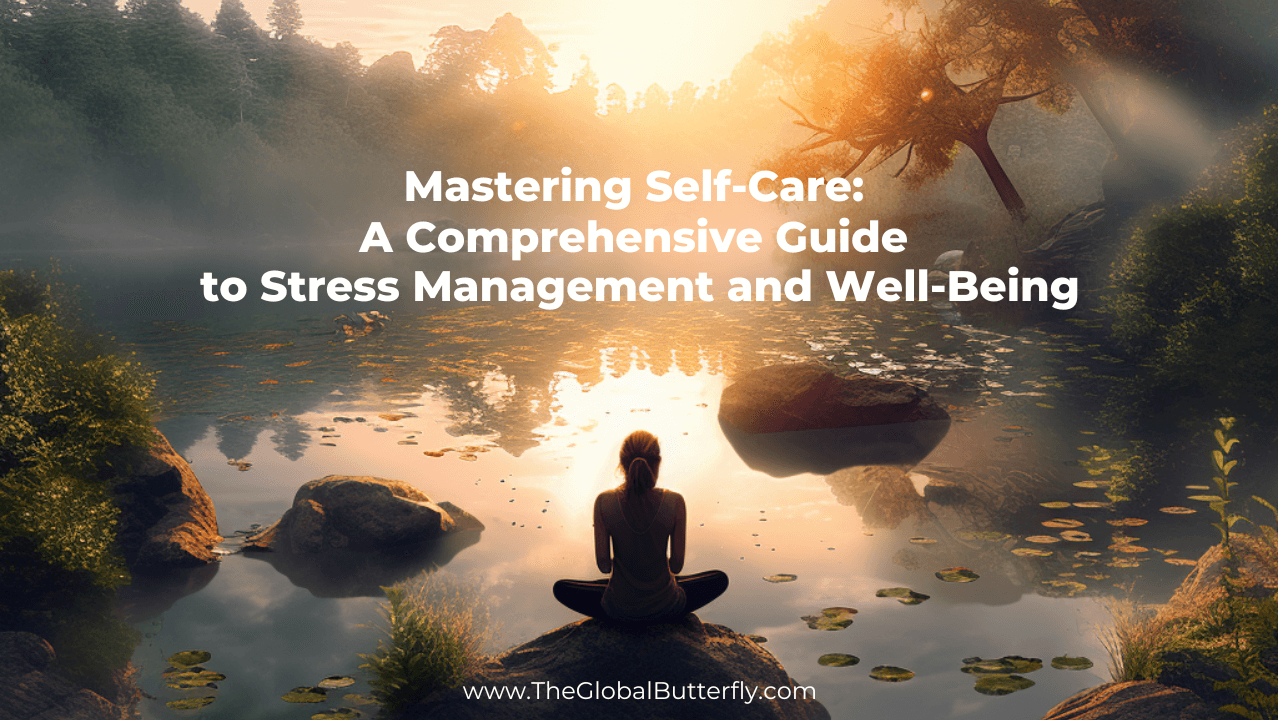
Life often throws us curveballs, and these past few weeks have been a testament to the unpredictable nature of my own journey. Challenges can arise in various forms, whether it's uncertainty about housing, work-related stresses, or health concerns. In these moments, it's essential to remind ourselves of the importance of self-care and well-being.
The Impact of Stress and Emotions on Health
Stress is more than just a mental state – it can significantly impact our physical health. Prolonged and intense stress can weaken our immune system, making us more susceptible to illnesses like colds. But how does this connection work?
1. Weakened Immune System: Stress triggers the release of hormones like cortisol, which, when elevated over extended periods, can suppress our immune system's ability to fight off infections. In simpler terms, stress can make us more likely to get sick.
2. Unconscious Beliefs: Often, stress is deeply intertwined with our unconscious beliefs or thought patterns. For instance, if you constantly worry about housing and work-related issues, these worries can generate stress. Unconscious beliefs might include thoughts like "I'm not safe," "I'm not in control," or "I'm not valued."
3. Physical Impact: Stress can lead to poor sleep, unhealthy eating habits, and reduced physical activity – all of which contribute to a weakened immune system and increased vulnerability to illness.
4. Emotional Impact: Dealing with uncertainty and challenging situations can take an emotional toll, leading to feelings of frustration, anxiety, and sadness. These emotions further affect our well-being.
5. Symptoms and Coping: Stress often manifests physically, resulting in symptoms like headaches, fatigue, or, as in my case, a cold and cough. Sometimes, these symptoms are signals that your body is struggling to cope with stress.
Understanding these connections between stress, emotions, and health is crucial. It's not just about overcoming physical symptoms; it's about addressing the root causes of stress to improve your overall well-being.
A Self-Care Plan for Stress Management and Well-Being
Here's a self-care plan to help you manage stress and support your overall health and well-being:
1. Set Realistic Goals: Break down your challenges into smaller, manageable tasks. This can make them feel less overwhelming and more achievable.
2. Prioritize Self-Care: Dedicate time to self-care activities you enjoy. Whether it's reading, walking, meditation, or pursuing hobbies, these moments are essential for your well-being.
3. Healthy Eating: Maintain a balanced diet with plenty of fruits, vegetables, lean proteins, and whole grains. Avoid excessive caffeine or sugary foods, which can contribute to stress.
4. Regular Exercise: Incorporate physical activity into your routine, even if it's just a short walk each day. Exercise can help reduce stress hormones and improve your mood.
5. Sleep Hygiene: Aim for 7-9 hours of quality sleep each night. Create a relaxing bedtime routine, avoid screens before bed, and ensure your sleep environment is comfortable.
6. Social Support: Reach out to friends and family for emotional support. Talking about your challenges and feelings can be incredibly helpful.
7. Mindfulness and Relaxation: Practice mindfulness exercises, deep breathing, or progressive muscle relaxation to calm your mind and reduce stress.
8. Limit Information Overload: Sometimes, too much exposure to stressful news or social media can add to your stress. Set boundaries on screen time to maintain peace of mind.
9. Professional Support: Consider speaking to a therapist or counselor who can help you navigate your stress and emotions. Or even better, BOOK AN ENERGY BALANCE SESSION HERE.
10. Review and Adjust: Regularly review your self-care plan and adapt it as needed. Your needs and circumstances may change, so it's important to fine-tune your self-care routine accordingly.
Prioritize Self-Care for Your Steps to Success
As you navigate life's twists and turns, always remember that prioritizing self-care is not a luxury but a necessity. Your journey to success, whether in business or personal growth, is intrinsically tied to your well-being. By taking care of your physical and emotional health, you're equipping yourself to face challenges with resilience and clarity. In the grand scheme of life, self-care is the cornerstone of a successful and fulfilling journey. So, take a moment today to nurture your well-being – you deserve it.

About The Author
Katie Joy, "The Global Butterfly," is a seasoned explorer of life's diverse landscapes, a passionate advocate for holistic well-being, and a dedicated guide to self-discovery. With a zest for cultural immersion and a deep belief in the transformative power of self-care, Katie inspires others to spread their wings and embark on journeys of personal growth, global connection, and lifestyle freedom.








